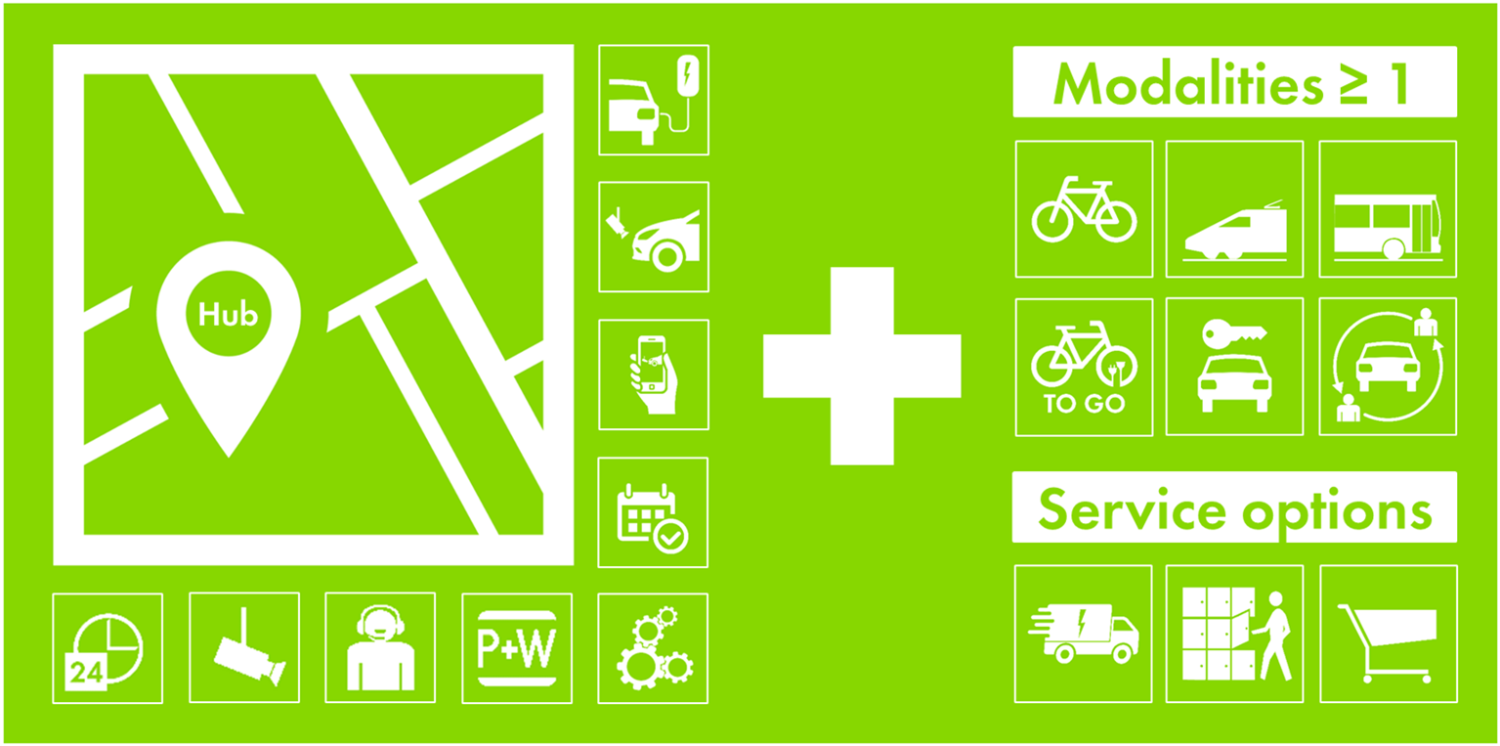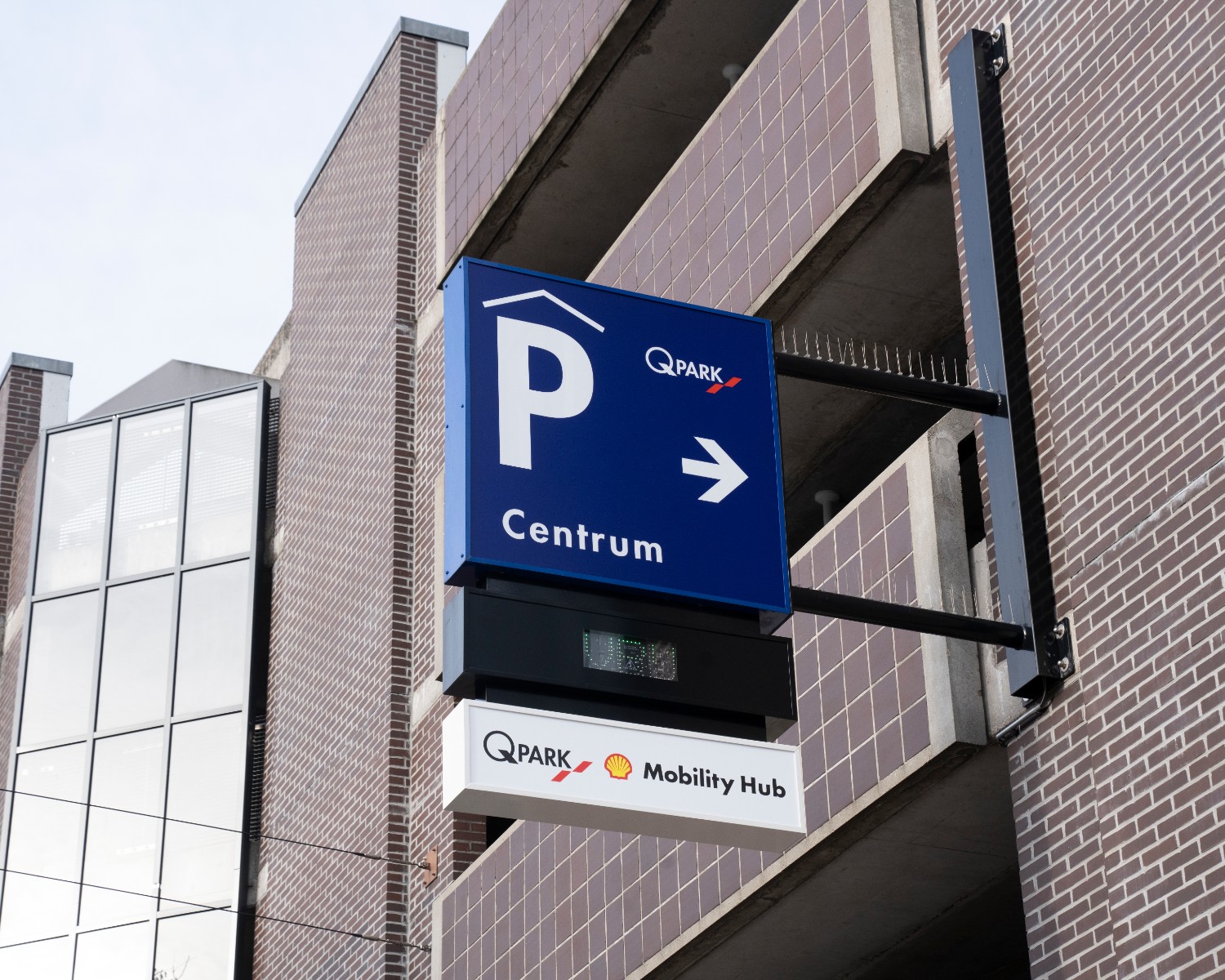Q-Park and Shell set mobility hub standard

Many cities have introduced low emission zones and carfree areas. But people still need to get into these areas for work and leisure or because they live there. And people travelling with an electric vehicle need to be able to recharge for their onward journey.
Urban areas need more and better parking facilities for commuters, visitors and residents at the edge of low emission zones and carfree areas. These car parks need to offer more than just parking. By transforming single-function car parks to smart mobility hubs, parking facilities can become part of the mobility transition; a proposition that Q-Park has advanced and been offering for a few years now.

Q-Park Mobility Hub definition - Includes 24hr service, CCTV, Q-Park Control Room connectivity, proprietary PaSS connection, pre-booking, ANPR and EV charging points. It also connects to at least one other mode of transport.
Efficient use of urban space
Q-Park and Shell Recharge have joined forces to create a new generation of mobility hubs in The Netherlands. Q-Park Centrum in The Hague is the first of the new hubs to open. It has been created in an existing parking facility, so it makes smarter use of inner city urban space. In addition to parking, the mobility hub offers a range of services.
Electric is the new norm
To serve the expanding national fleet of electric vehicles, Q-Park and Shell Recharge offer two types of charging points.
Fast DC charging is accessible via a separate entrance to the parking facility. A fast charge will top up the car to around 80% in less than 30 minutes. While they’re waiting, customers can visit the Shell Café.
AC charging points are accessible in the multistorey car park. When customers return to their car after a few hours, the battery will be sufficiently topped up for their onward journey.

New services in mobility hubs
Mobility hubs are an ideal location for other services, including shared mobility for the last mile to the final destination. Services offered at the mobility hub are available to commuters, visitors and residents alike.
Q-Park Centrum offers more than 700 parking spaces, 16 of which are dedicated to EV charging. The following additional services are available at Q-Park Centrum:
E-bike and cargo bike rental
Car sharing schemes
Public transport
Parcel wall
Shell Café
Meeting rooms and co-working space
Dry cleaner, laundry, clothing repair and used clothing collection.
Energy efficient with smart energy hub
The Q-Park Centrum mobility hub is equipped with a bi-directional smart energy hub. This is designed to manage the power generated by the PV panels on the roof and to direct electricity to the battery pack, DC LED lighting, and EV charging points. The energy hub also provides AC power for the rest of the car park equipment, such as the lifts and barriers.
If the battery packs are fully charged, the hub will convert the power generated by the PV panels to AC and channel it to the public grid.
Furthermore, in the event that the battery pack cannot meet electricity demand in the mobility hub at any point, the smart energy hub will draw power from the grid. It optimises energy flow and, using patented power equalisation technology, balances the mobility hub’s power consumption. This also minimises dependence on the grid.
The entire installation, in combination with the Nilar battery pack also provides a reliable peak shaving and time shifting power solution. In the event of a public grid power failure, the smart energy hub will continue to power the facility.

Peak shaving; the added value provided by integrating an energy storage system with a solar energy system. Source: SolarTech.
Click the image for a video impression of the Q-Park Centrum mobility hub transformation project.

